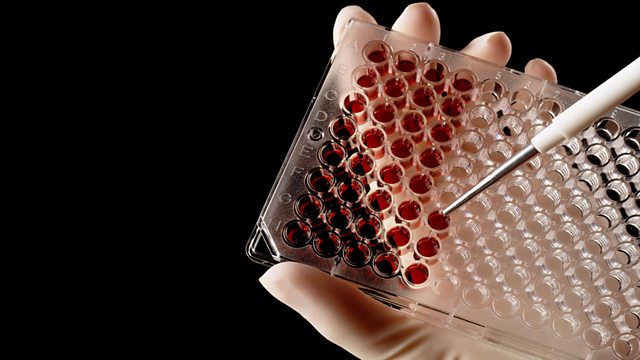The New Antibiotics
In this episode of Frontiers, Peter Evans hears from scientists looking for new ways to defeat the super-bugs.
In 1945 the father of antibiotics Alexander Fleming predicted that microbes could become 'educated' to resist penicillin, eventually making antibiotics useless against disease. Now, with growing fears about the spread of drug-resistant infectious diseases such as MRSA, Fleming is being proved right.
In this episode of Frontiers, Peter Evans hears from scientists looking for new ways to defeat the super-bugs. The most recent figures suggest that in one year 5000 people died from hospital infections such as MRSA in one year.
In the past, science has fought off this bacterial counter-attack by inventing new anti-microbial compounds and ensuring they are prescribed judiciously. But today, we live in an era when virtually no new antibiotics are in development, and even the strongest ones we have aren't 100% effective against these microbes.
So is that it? Are we doomed to see the rise of serious infectious diseases for which there are no effective treatments? Not if quorum sensing has anything to do with it. The most striking feature of many bacteria is the ability of individual bacterium to communicate with one another and reach a "decision". This is known as quorum sensing.
Now scientists are trying to unravel the secrets of quorum sensing in the hope that they can learn how to block the communication between bacteria that drives its ability to cause disease.
However, a new strain of MRSA which first surfaced in the United States is making its way to our shores and not only is it more potent and more resistant to existing antibiotics, it's acquired not in hospitals but within the community. More worryingly, otherwise healthy young athletes are as susceptible to infection as the sick and vulnerable.
Doctors at the University of California have discovered that this bacteria, known as USA 300, has evolved over time, importing genes from elsewhere and becoming much more virulent. By sequencing the genes, scientists hope to develop an anti-bacterial drug to fight it.
However, treatments based on gene sequencing and quorum sensing are some way in the future. While campaigns to make hospitals cleaner are showing some results, some doctors feel that a more intensive effort is needed now to develop powerful new drugs to beat MRSA and its successors.
Last on
Broadcast
- Wed 10 May 2006 21:00大象传媒 Radio 4
Podcast
-
![]()
Frontiers
Programme exploring new ideas in science and meeting the researchers responsible


